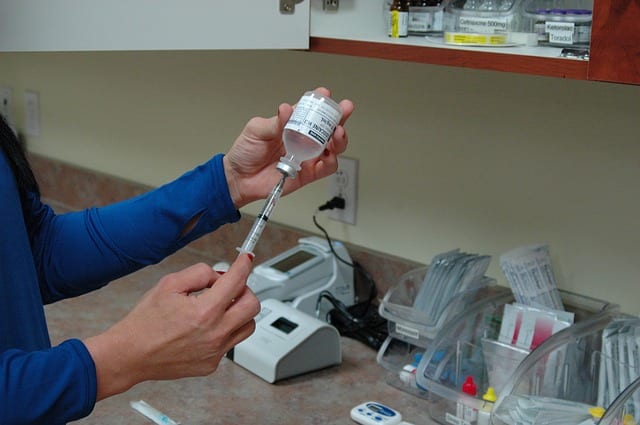
How Can Expats Get Their Children Immunised?
 The World Health Organisation has reported a worrying increase of children with measles in Europe. Italy and Romania have seen the largest outbreaks and the WHO warns this is due to a drop in children being immunised.
The World Health Organisation has reported a worrying increase of children with measles in Europe. Italy and Romania have seen the largest outbreaks and the WHO warns this is due to a drop in children being immunised.
In January 2017 alone, Italy reported more than 200 cases of measles. Romania has reported 3,400 cases and 17 deaths since January 2016. Due to measles being highly contagious, the viral illness can spread between people and countries easily. For a country to be sufficiently protected 95% or more of the population needs to have been vaccinated against the illness.
France, Germany, Poland, Romania, Switzerland and the Ukraine have all had measles outbreaks. Immunisation statistics for all these countries show a worrying lull in the number of children receiving the protective injection.
The WHO’s regional director for Europe, Dr Zsuzsanna Jakab said: “I urge all endemic countries to take urgent measures to stop transmission of measles within their borders, and all countries that have already achieved this to keep up their guard and sustain high immunisation coverage.”
Immunisation in the UK
Babies and pre-school children in the UK can receive the MMR (measles, mumps and rubella) vaccine on the NHS. This applies to both national and foreign children. In the UK, the NHS has a list of immunisations that are routinely offered to children, starting at 8 weeks of age to 14 years old. Expats living in the UK should register with their local doctor’s surgery and book an appointment to see a GP and discuss their child’s needs.
Vaccines in Australia
Like the UK, Australia has a standard vaccination schedule which starts with the Hepatitis B injection at birth. However, the latest child health poll by the Royal Children’s Hospital in Melbourne revealed that one in six children are not up to date with their vaccines.
Expats in Australia are automatically part of The Immunise Australia Programme. This aims to increase national immunisation rates by funding free vaccination programmes for children, adults and the elderly. Expats will need to have a permanent resident visa or have applied for certain permanent resident visas. A valid working visa or having a parent, spouse or child who has permanent resident status will also allow access to the programme.
Expat Immunisation in Spain
Spain’s National Health System is regarded as one of the best in the world. To access free public healthcare expats must add themselves to the municipal register. This will provide them with a security number and card which can be presented at their local doctor’s surgery to receive a medical card.
The vaccination process in Spain is very similar to that in the UK and other European countries. All children under the age of 14 are assigned a paediatrician at the local health centre. Parents of children born outside of Spain will simply need to provide a record of the immunisations already had.
Vaccinating Children in the USA
Childhood immunisations in the United States are given by the Centres for Disease Control and Prevention. There is no National Health Service, but two state-funded plans put in place for the elderly, disabled, poor and young. It is imperative for expats to take out expat insurance when living in the USA to cover not only their children’s immunisations, but any future treatment needed.
Childhood Vaccines in France
Robb Butler, member of the WHO Regional Office for Europe, expressed that there are several reasons why vaccination coverage has dropped in France. Not only is there fear surrounding vaccines, but the process is an inconvenience to some.
In France, residents must make an appointment with their doctor to get a prescription, go to the pharmacy to collect the vaccine and then rebook with their doctor to have the jab administered.
Expats can immunise their children for free in the public sector or opt to go private by paying for private medical insurance. Both the care offered by public and private facilities is exceptional so it is down to personal preference.
An internet search will reveal the protocol for childhood vaccines for most countries in the world. If you are ever in doubt it is best to talk to your doctor or opt for a private healthcare policy to ensure care.
Should you be concerned about medical expenses and your eligibility for free healthcare in the country have relocated to, look at international health insurance for families to help you. Our policies are comprehensive and give you all the coverage you need.
